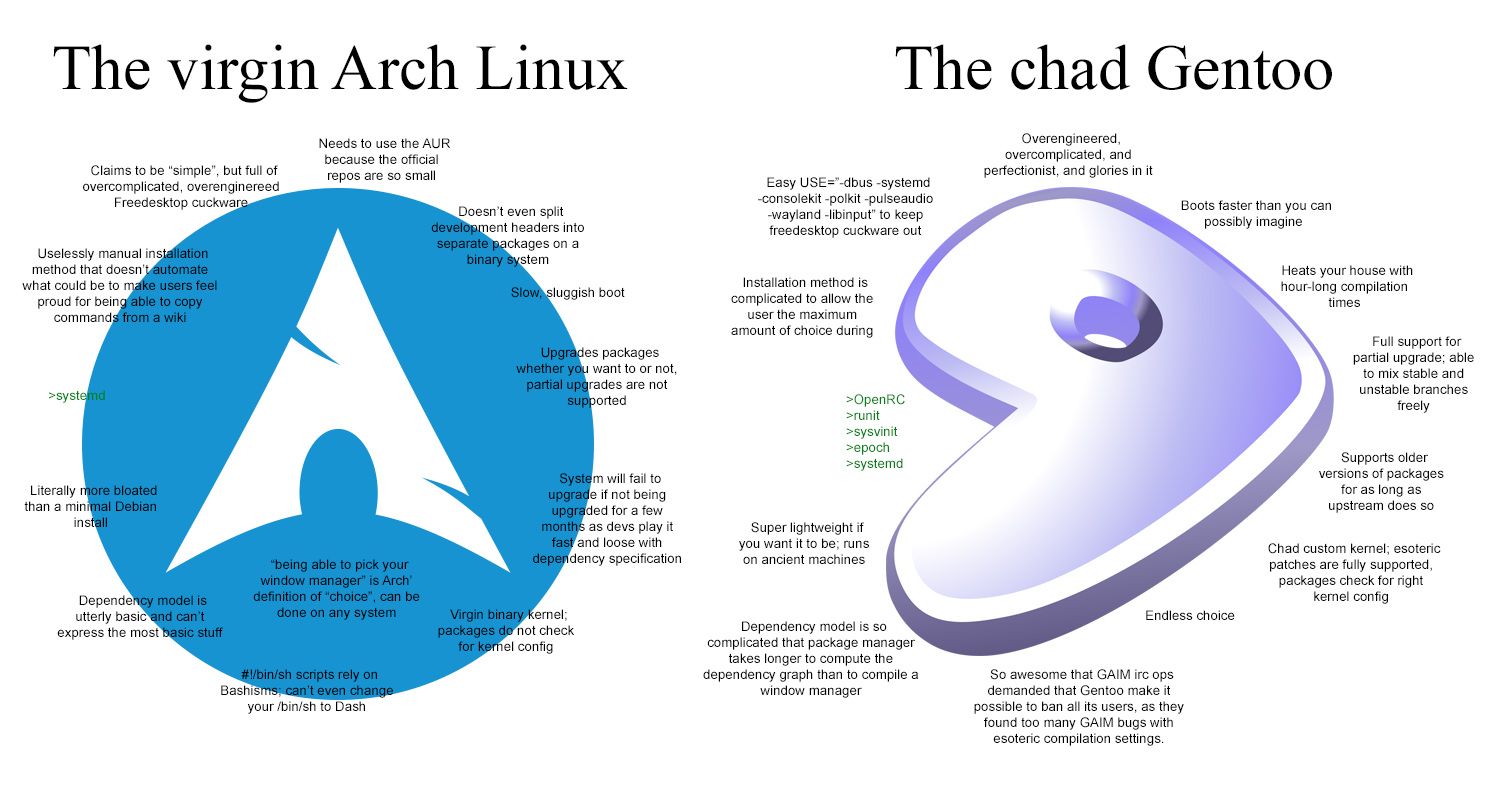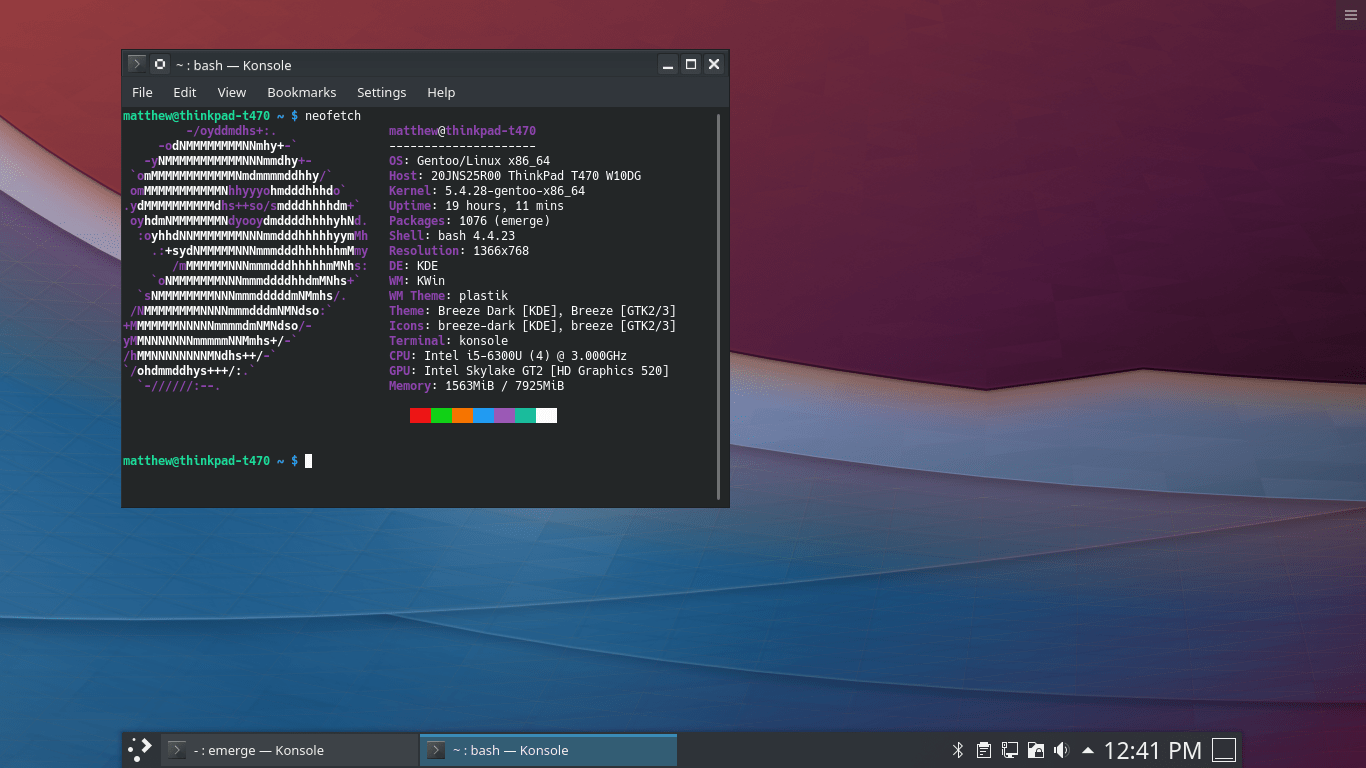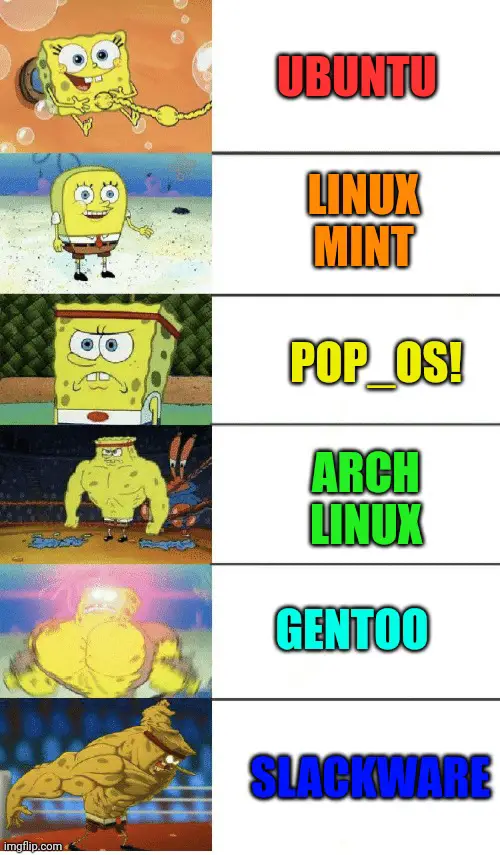Linux From Scratch (LFS) and Gentoo are two Linux distributions that offer a high level of customization. Both distributions are designed for users who want to build their own systems from the ground up, and both provide a wide range of options for configuring the system to meet the user’s specific needs.

LFS is a complete Linux system that is built from source code. This means that users must download the source code for all of the software that they want to install, and then compile and install it themselves. This process can be time-consuming, but it gives users complete control over the system. Gentoo is also a Linux system that is built from source code, but it takes a different approach than LFS. Gentoo uses a package management system called Portage, which makes it easy to install, update, and remove software. Portage also allows users to customize the software that they install, so they can choose the features that they want and disable the ones that they don’t.

LFS and Gentoo are both powerful distributions that offer a high level of customization. However, they also require a significant investment of time and effort to use. Users who are willing to put in the time can create a system that is tailored to their specific needs.

Here is a table that summarizes the key differences between LFS and Gentoo:
| Feature | LFS | Gentoo |
|---|---|---|
| Build system | Source code | Portage |
| Package management | Manual | Automatic |
| Learning curve | Steep | Moderate |
| Time to build a system | Long | Medium |
| Level of customization | Complete | High |
Executive Summary
For experienced Linux users seeking unparalleled system tailoring, Linux From Scratch (LFS) and Gentoo emerge as formidable contenders. LFS offers a granular, hands-on approach to building a Linux system from the ground up, while Gentoo provides a flexible framework for customizing every aspect of the operating system. This article delves into the intricacies of both approaches, comparing their philosophies, methodologies, pros, and cons to empower users in making an informed decision.
Introduction
The pursuit of complete system control and optimization has led to the development of Linux From Scratch and Gentoo, two methodologies that cater to the needs of advanced Linux users. LFS emphasizes the educational value of assembling a system from its fundamental components, while Gentoo focuses on providing a highly customizable platform through its unique package management system. Understanding the differences between these approaches is crucial for selecting the one that best aligns with individual goals and technical expertise.
Subtopic 1: Philosophical Approach
LFS adheres to a purist philosophy, advocating for a deep understanding of the underlying system components and a willingness to invest significant time and effort in the build process. On the other hand, Gentoo adopts a pragmatic approach, prioritizing flexibility and customization over the educational aspects of system building.
Subtopic 2: Customization Level
LFS offers unparalleled customization, granting users complete control over every aspect of their system. From the kernel to the desktop environment, every component is manually selected and configured. Gentoo also allows for extensive customization, but it is primarily focused on software selection and package management. Users can fine-tune the build process and optimize system performance through a range of compile-time options.
Subtopic 3: Installation and Configuration
LFS requires a manual installation and configuration, which can be a time-consuming and complex process. It involves compiling and installing all necessary software components, as well as configuring them to work seamlessly together. Gentoo utilizes a sophisticated package management system known as Portage, which automates the installation, updating, and removal of software packages. This simplifies system maintenance and allows for more efficient package management.
Subtopic 4: Learning Curve
LFS has a steep learning curve, requiring users to possess a solid understanding of Linux and system administration. The manual installation and configuration process demands a significant investment of time and effort. Gentoo also has a learning curve, but it is generally more accessible than LFS, with extensive documentation and community support available.
Subtopic 5: Community Support
Both LFS and Gentoo benefit from active communities that provide support and resources. The LFS community is primarily focused on educational materials and troubleshooting, while the Gentoo community is known for its extensive package repositories, documentation, and online forums.
Conclusion
The choice between Linux From Scratch and Gentoo ultimately depends on the user’s technical expertise, customization goals, and time constraints. LFS offers unparalleled customization and educational value, but it requires a significant investment of time and effort. Gentoo provides a flexible and pragmatic approach to customization, with a user-friendly package management system and a vibrant community. Both approaches empower experienced Linux users to tailor their systems to their specific needs, but the path to complete customization differs significantly.
Keyword Phrase Tags
- Linux From Scratch
- Gentoo
- System Customization
- Linux Distro Comparison
- Advanced Linux Users

LFS is the way to go if you want complete control over your system. It’s a lot of work, but it’s worth it in the end.
I’m not sure I see the point of LFS. Why would I want to build my system from scratch when I can just use a pre-built distribution like Gentoo?
LFS and Gentoo are both great distributions for different reasons. LFS is great if you want complete control over your system, while Gentoo is great if you want a more user-friendly experience. Ultimately, the best distribution for you is the one that meets your specific needs.
I disagree with the author’s assessment of Gentoo. I think it’s just as customizable as LFS, but it’s much easier to use. If you’re not willing to put in the time to learn how to use LFS, then Gentoo is a better choice.
I’m surprised the author didn’t mention that LFS is the best distribution for people who like to live on the edge. If you’re not afraid of breaking your system, then LFS is the perfect distribution for you.
Oh, you want to build your system from scratch? That sounds like a great way to waste your time. Why not just use a pre-built distribution like Gentoo and save yourself the hassle?
I once tried to build LFS, but I gave up after I accidentally deleted my root partition. I guess I’m just not cut out for the LFS life.
I’ve used both LFS and Gentoo, and I can say that they’re both great distributions. It really depends on your own needs and preferences which one is right for you.
I’m new to Linux, and I’m not sure which distribution is right for me. Can anyone give me some advice?